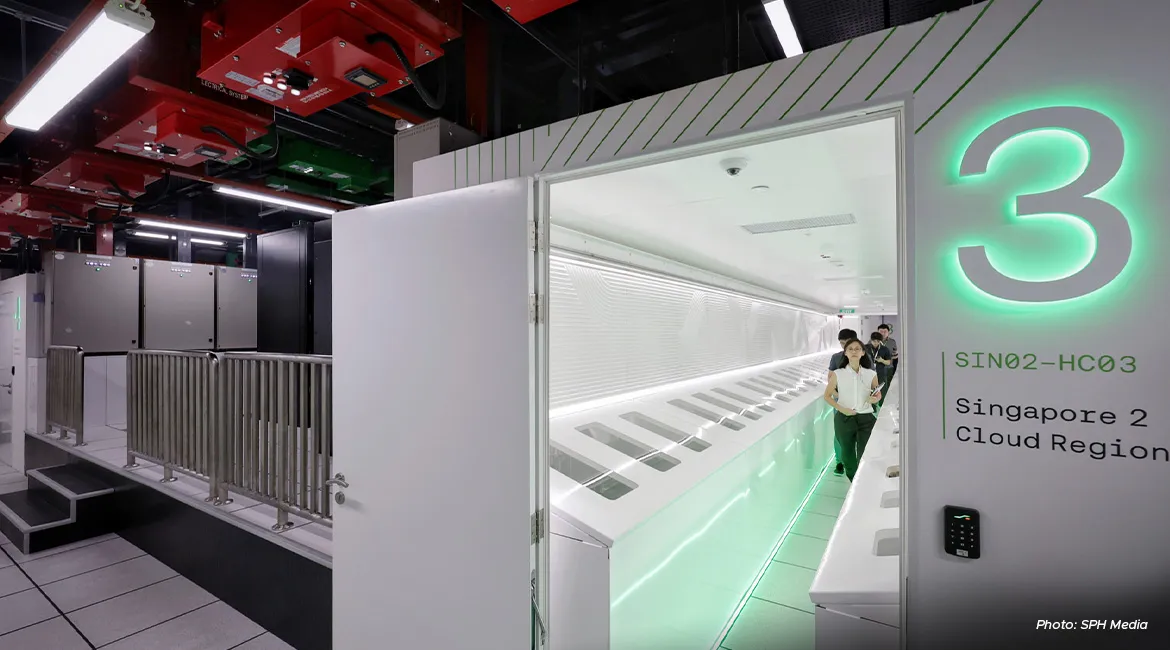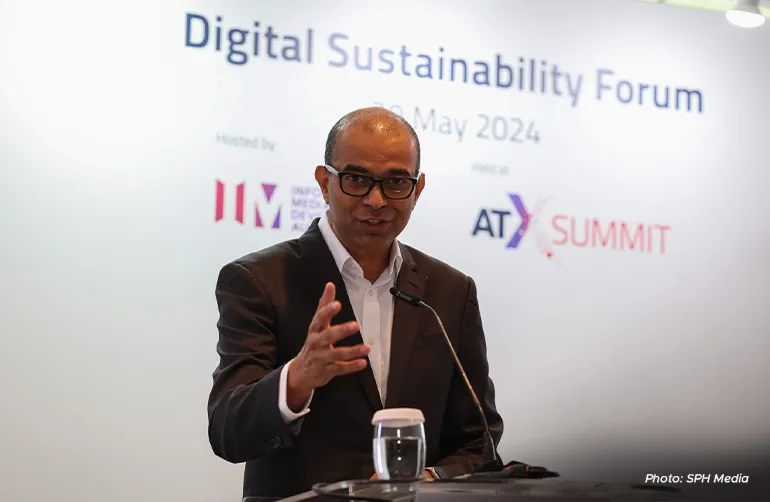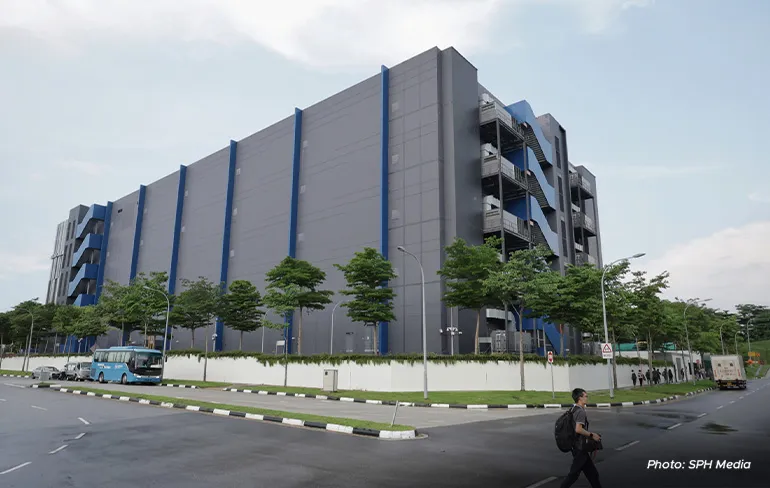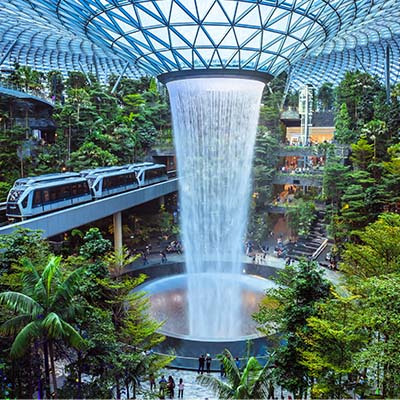Singapore aims to expand its data centre capacity by more than one-third to satisfy rising computing needs, as more businesses digitalise and more artificial intelligence (AI) services are rolled out.
At the same time, data centre operators keen to seize this opportunity will have to go green.
At least 300 megawatts (MW) of data centre capacity will be added in the next few years, with another 200 MW allocated only for operators who use green energy options.
The potential 500-and-more MW will add to the existing 1.4 gigawatts of computing capacity in more than 70 data centres on the island, which host the digital lives of internet users here and around the world.
Announcing the details of Singapore’s new Green Data Centre Roadmap launched on 30 May, Deputy Prime Minister Heng Swee Keat said greening data centres is crucial in a digital and carbon-constrained world.










